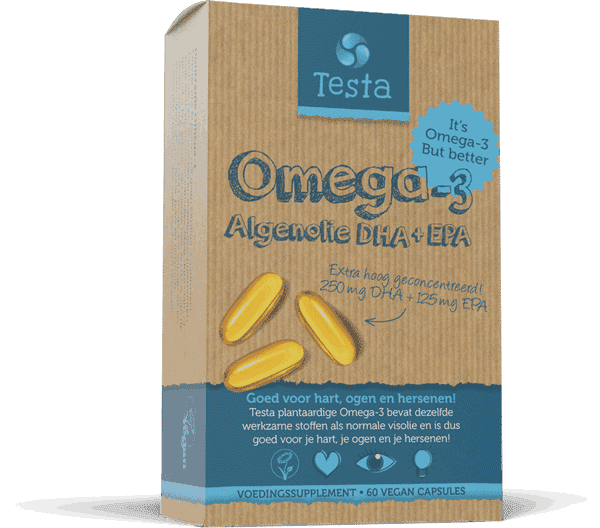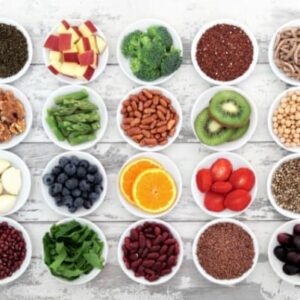Why You Need More DHA & EPA In Your Diet for Heart Health
What Are Omega-3 Essential Fatty Acids?
Chances are you’ve heard of ‘healthy fats’ when reading or talking about nutrition and a healthy diet. ‘Healthy fats’ refers to polyunsaturated fats which help your body absorb certain vitamins and nutrients it needs for healthy functioning.
The two major classes of polyunsaturated fats are omega-6 and omega-3 fatty acids; both are essential fatty acids the human body can’t make on its own and they are vital to human health.
The three main omega-3 fatty acids are alpha-linolenic acid (ALA), eicosapentaenoic acid (EPA), and docosahexaenoic acid (DHA). These three essential fatty acids, especially the combination of DHA and EPA, play a vital role in body processes.
ALA is mostly found in plant foods such as soybeans, vegetable oils, and flaxseed. Your body can convert ALA into DHA and EPA however the process isn’t very efficient and doesn’t provide your body with the amount of DHA and EPA it needs. This is why it’s important to make sure you get enough of all three essential fatty acids in your diet.
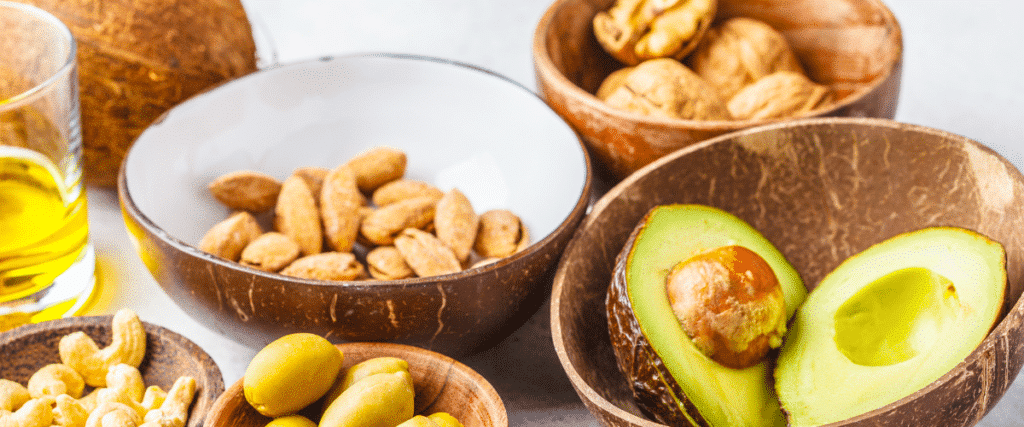
Heart Health Benefits of DHA & EPA
Research has shown that people who have a diet rich in omega-3 fats, or who regularly take omega-3 supplements, have a lower risk of health conditions. The combination of DHA & EPA benefits heart health in numerous ways.
For Adults & Seniors, omega-3 fatty acids can improve long-term heart health for adults and seniors. DHA and EPA has been shown to decrease body fat levels which improves heart health overall. For children and babies in utero, studies have shown that DHA and EPA are crucial nutrients for healthy brain development.
Omega-3 fatty acids are beneficial to pregnant women for multiple reasons. In connection with the heart, omega-3s increase heart rate variability, which may sound bad but reflects how adaptable the human body can be. A highly variable heart rate is evidence that the body can adapt to many types of changes.
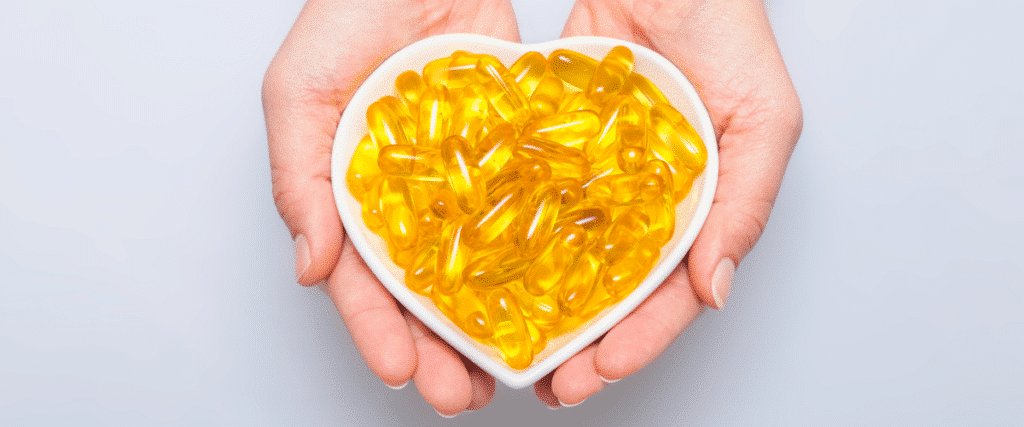
Which Plant-based Foods Contain Omega-3 Essential Fatty Acids?
It’s a common belief that the only way to get omega-3 essential fatty acids is through eating fatty fish or taking fish/krill oil supplements. Of the three main types of omega-3s, plant foods typically have only ALA which must be converted into EPA and DHA to be active in the human body.
Chia seeds, brussels sprouts, hemp seeds, walnuts, flaxseed, and perilla oil are all plant-based sources of ALA. It’s important to consume ALA for optimal growth and development, but remember that the body cannot efficiently convert ALA into sufficient amounts of DHA and EPA.
Algae oil stands out as one of the few plant-based sources of EPA and DHA. It’s a great alternative for vegans looking to incorporate all three of the main omega-3 fatty acids into their diet.
Studies have shown that the percentage of DHA and EPA in microalgae is similar to that of various types of fatty fish. In fact, fish don’t naturally produce EPA or DHA, they get it by eating microalgae!
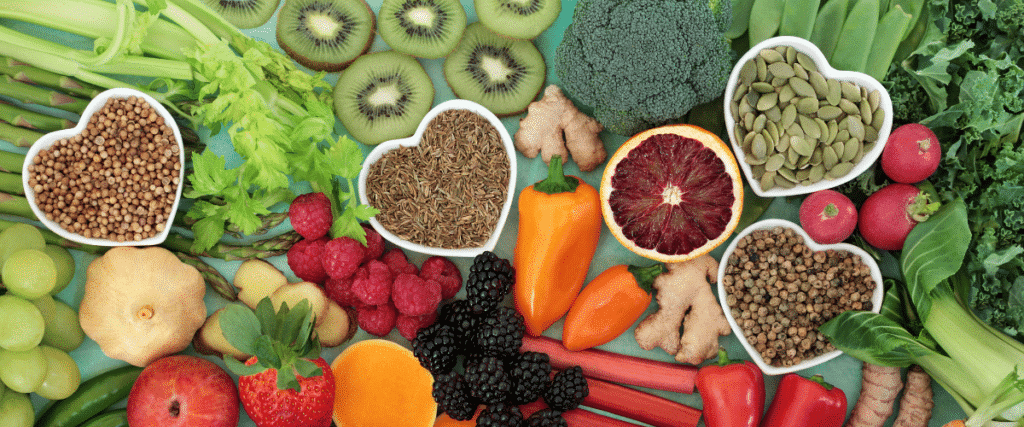
Plant-Powered Omega-3 is Better than Omega-3 from Fish Oil
Fish oil is most often made from Peruvian anchoveta, one of the most caught fish in the world. The Peruvian anchoveta is a keystone species, meaning it’s a fundamental part of the marine food chain and is crucial for a healthy ocean ecosystem. Overfishing of the anchoveta puts the food chain out of balance, rippling through marine ecosystems with devastating effects.
No matter the type of fish used to make fish oil, trawling nets almost always catch other marine life such as whales, seals, penguins, and sharks. There’s no question about it, fish oil isn’t sustainable. So why not go for a more ocean-friendly alternative?
Testa Omega-3 including vegan krill oil products are made from algae, which is cultivated sustainably on land with no impact on our oceans. Testa plant-powered omega-3 is free from ocean pollutants and won’t leave you with bad breath, heartburn, or fishy burps.
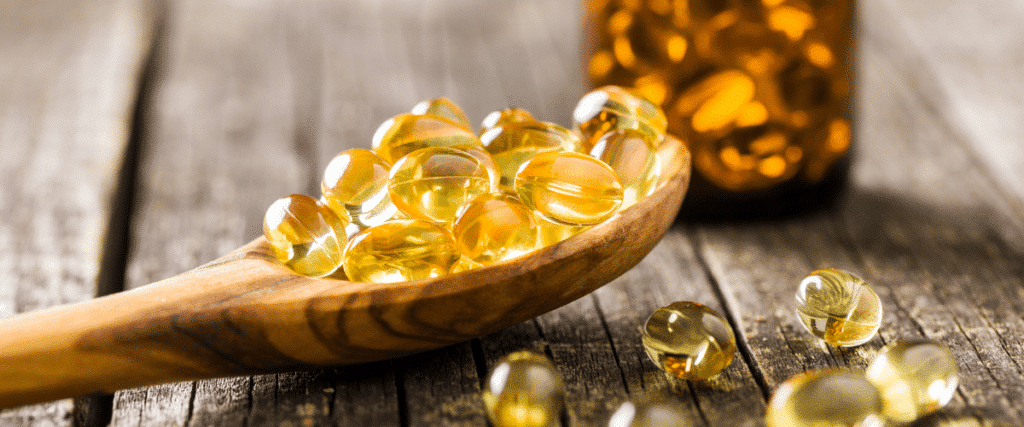
How Much DHA & EPA Should You Consume Daily?
Most health organizations recommend that healthy adults consume a combined minimum of 250-500mg of EPA and DHA every day. For pregnant women and nursing mothers, it’s recommended to take an additional 200-330mg of DHA. The suggested intake for children depends on their age and health requirements.
Most fish oil supplements contain low doses of EPA and DHA. We harvest Testa Omega-3 Vegan supplements from microalgae grown on land. We control the amount of DHA & EPA by changing algae’s exposure to variables like oxygen, and glucose.
Many fish oil supplements contain less than the recommended daily intake of DHA and EPA in one 1,000 mg capsule. So you’ll need to take at least two or three capsules a day and you’ll see that pricey bottle you bought quickly empty.
One capsule of Testa Omega-3 algae oil contains 325mg of DHA and 150mg of EPA, which means you’ll be getting the same amount of essential fatty acids as if you were eating fatty fish twice a week. It’s recommended to take the supplement with meals containing healthy fats to improve your body’s absorption of omega-3s.
